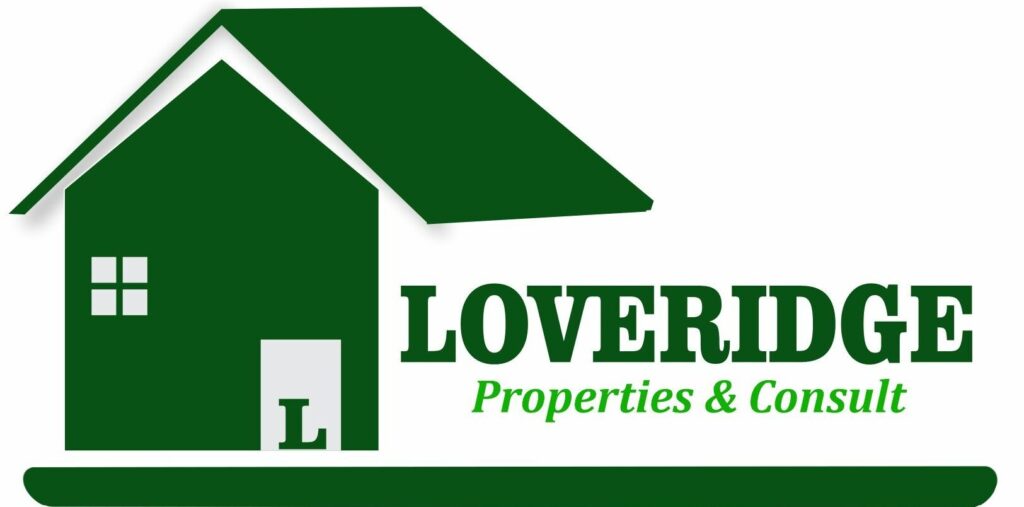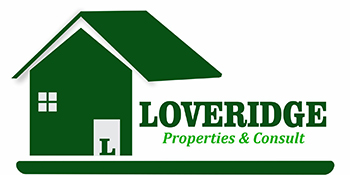Building a Sustainable Future: The Rise of Green Real Estate in Ghana
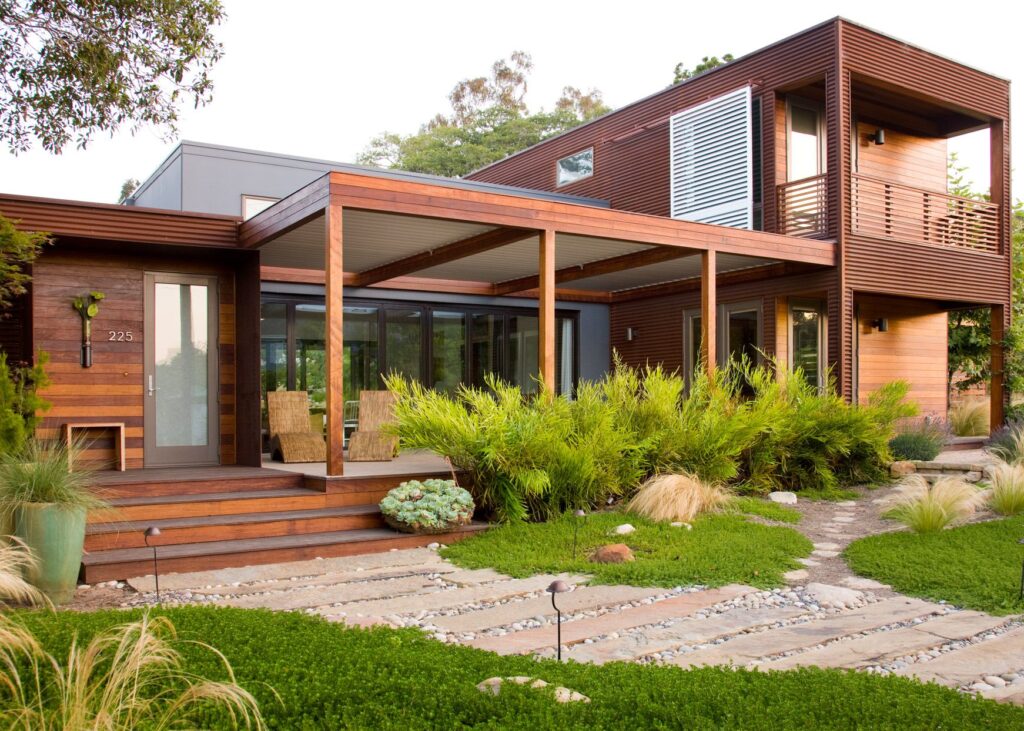
Introduction: Ghana, a country known for its rich cultural heritage and vibrant economy, is experiencing rapid urbanization and population growth. As the demand for housing and infrastructure increases, so does the need for sustainable real estate development. In recent years, Ghana has made significant strides in embracing sustainable practices in the real estate sector. This blog explores the sustainability of real estate in Ghana, highlighting the key factors driving this positive change. Green Building Practices: One of the cornerstones of sustainable real estate in Ghana is the adoption of green building practices. Developers are increasingly incorporating energy-efficient designs, utilizing renewable materials, and implementing green technologies. These practices not only reduce the environmental impact of buildings but also contribute to lower energy consumption and operational costs for occupants. Infrastructure Development: To support sustainable real estate, the Ghanaian government has been investing in infrastructure development. Improved roads, water supply systems, and waste management facilities enhance the livability of cities and make real estate investments more attractive. These developments also contribute to reducing the carbon footprint of urban areas. Renewable Energy Integration: Ghana boasts abundant renewable energy resources, including solar and wind power. Real estate developers are harnessing this potential by integrating renewable energy systems into their projects. Solar panels, for instance, are being installed on rooftops to generate clean energy for buildings, reducing reliance on fossil fuels and lowering carbon emissions. Affordable and Sustainable Housing: Addressing the housing deficit is a key priority for the Ghanaian government. Sustainable affordable housing initiatives aim to provide environmentally friendly and energy-efficient homes to low-income individuals and families. These projects incorporate sustainable building materials, energy-efficient appliances, and water-saving fixtures, making housing more affordable and environmentally responsible. Community Engagement: Sustainable real estate development in Ghana goes beyond the physical structures. It involves engaging with local communities to ensure their needs are met. Developers are working closely with communities to provide access to amenities, promote social inclusivity, and preserve cultural heritage. This collaborative approach fosters a sense of ownership and ensures that real estate projects align with the needs and aspirations of the people. Regulatory Framework: The Ghanaian government has implemented regulations and standards to promote sustainable real estate practices. These regulations cover areas such as energy efficiency, waste management, and environmental impact assessments. By enforcing these regulations, the government is creating a conducive environment for sustainable real estate development and ensuring long-term environmental and social benefits. Conclusion: The sustainability of real estate in Ghana is gaining momentum, driven by a combination of factors such as green building practices, infrastructure development, renewable energy integration, affordable housing initiatives, community engagement, and a supportive regulatory framework. While challenges remain, including access to financing and enforcement of regulations, the commitment to sustainability is evident. With continued efforts from the government, developers, and stakeholders, Ghana is well on its way to building a sustainable future where real estate development harmonizes with the environment and the needs of its people.
Lucrative Investment Opportunities in Ghana
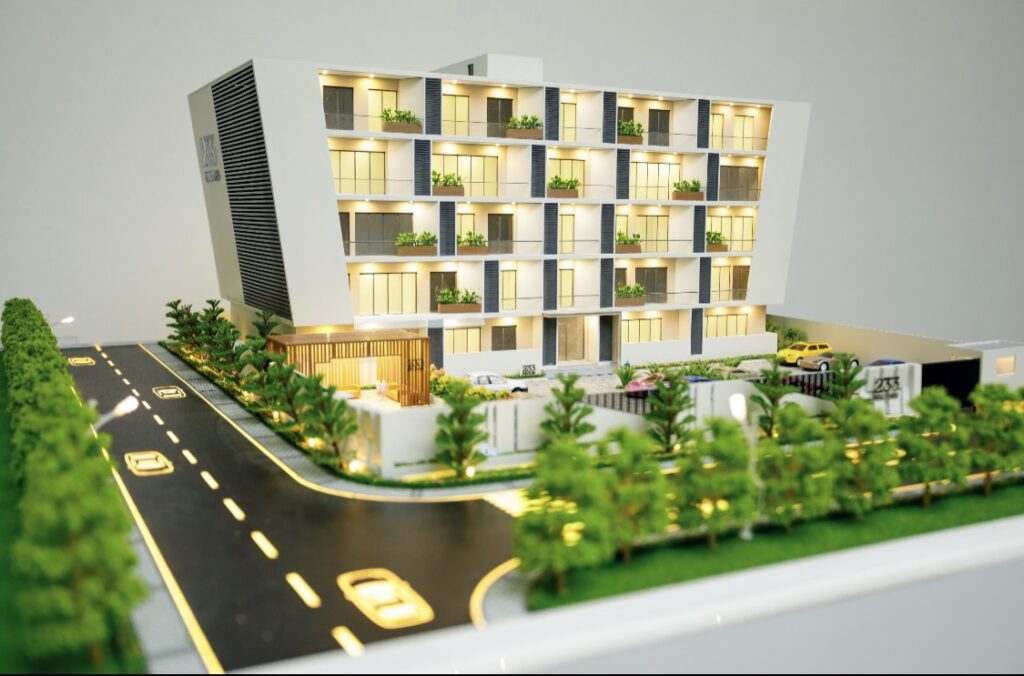
Ghana, the land of gold, cocoa, and now, a rising star in the real estate investment scene! Yes, you heard it right, folks. Ghana is not just known for its natural resources and vibrant culture; it’s also becoming quite the hot spot for property investors. Let me tell you why. Firstly, let’s talk about affordable property prices. Unlike some countries where buying a house is like selling your soul to the devil, Ghana offers a much more pocket-friendly option. You can actually find decent properties without sacrificing your firstborn child, which is always a plus, right? And if that wasn’t enticing enough, how about high rental yields? Ghana is experiencing a rising demand for rental properties, especially in its major cities like Accra and Kumasi. So, if you have a property to rent out, you’ll be swimming in cash like Scrooge McDuck. Cha-ching! But wait, there’s more! Ghana is also seeing a wave of emerging residential and commercial developments. The skyline is changing, my friends, with new apartment complexes, shopping malls, and office buildings popping up left and right. So, if you want to be a part of this exciting growth, now’s the time to jump on the real estate bandwagon. Now, let me sprinkle some personal touch to this. Picture yourself sipping on some fresh coconut water while basking on the white sandy beaches of Ghana. Ah, the perfect setting to enjoy the fruits of your profitable real estate investment. And with Ghana’s warm hospitality and rich cultural diversity, you’ll feel right at home in no time. But hold your horses, my friend. Before you start packing your bags and booking a one-way ticket to Accra, there are a few things you should know. Like any investment, there are risks and challenges. Land acquisition and ownership issues, infrastructure deficiencies, and bureaucratic processes can sometimes make you want to pull your hair out. So, be prepared to navigate through these hurdles with the patience of a saint. In a nutshell, Ghana is a gold mine for real estate investment opportunities. With affordable property prices, high rental yields, and a flurry of emerging developments, it’s like hitting the jackpot, minus the slot machine. However, it’s not all sunshine and rainbows, as challenges and risks come hand in hand. But, if you’re willing to take the plunge and ride the waves, Ghana might just be the perfect destination for your real estate dreams. Now, hold on tight and keep reading, because we’ve got more fascinating insights into Ghana’s real estate scene coming your way. Trust me, you don’t want to miss it. So, stay tuned, my friend!
The Potentials of Ghana’s Real Estate Market
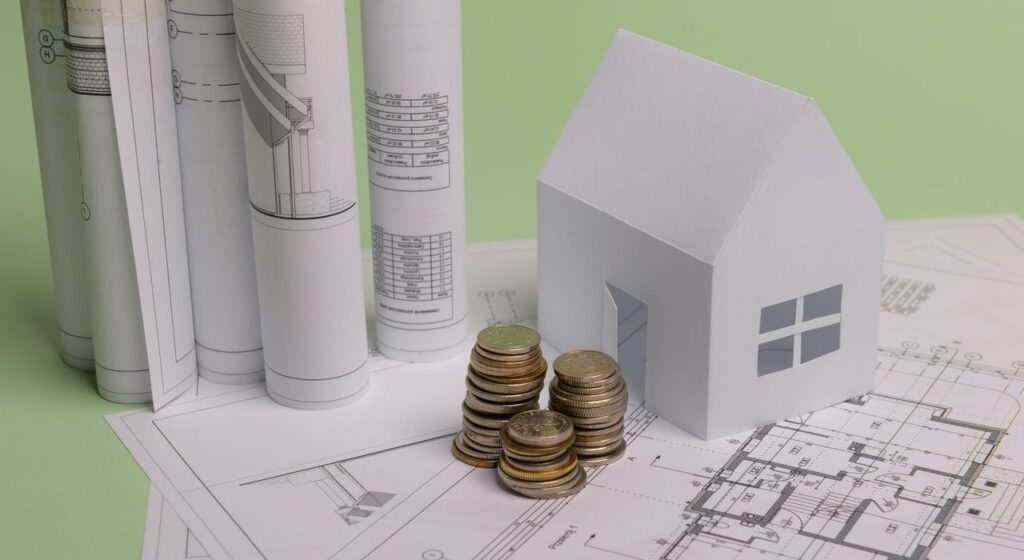
Ghana: The Rising Star of Real Estate Investment in Africa Welcome, fellow real estate enthusiasts, to a blog about the untapped potential of Ghana’s real estate market. Get ready for a rollercoaster ride through facts, figures, and a touch of quirkiness that will leave you convinced that Ghana is the place to be when it comes to real estate investment in Africa. The Potentials of Ghana’s Real Estate Market: Picture this: a stable economy, a political landscape that actually makes sense (yes, you read that correctly), increasing urbanization, and a population that just keeps growing. Sounds like a dream, doesn’t it? Well, dear readers, this dream is a reality in Ghana. Let’s talk about the elephant in the room – Ghana’s stable economy. Unlike some other countries in the continent (no names mentioned), Ghana has managed to keep its economic ship afloat. With a growing GDP and a business-friendly environment, this nation is a beacon of hope for investors looking to make their mark in Africa. But wait, there’s more! Ghana is not only financially stable but also experiencing rapid urbanization. The urban population is on the rise, and guess what? They need places to live, work, and play. That’s where the magic of Ghana’s real estate market comes into play. With increased demand for residential and commercial spaces, the opportunities for investment are simply staggering. Hold on tight, because we’re not done yet! Foreign direct investment is pouring into Ghana like never before. The government is actively encouraging investment in the real estate sector, and it’s not just empty promises. Infrastructure development is taking place at a rapid pace, creating a solid foundation for future growth. Who said Africa can’t have nice things? Wrap Up: Well, my fellow adventure-seeking investors, we’ve barely scratched the surface of Ghana’s real estate potential. Affordable property prices, high rental yields, emerging residential and commercial developments, a fast-growing expatriate community, government initiatives, and plenty more exciting factors await us in this land of opportunity. So, buckle up, and let’s dive deeper into the world of Ghanaian real estate. Because let’s be honest, who wants to invest in boring old stable markets when you can embark on an exhilarating real estate journey in Ghana? Stay tuned for more!
Money Laundering in the Real Estate Industry in Ghana

Money laundering in the real estate industry is a significant concern in Ghana, as it poses various risks to the economy and the integrity of the property market. Criminals exploit the sector’s loopholes to legitimize illicit funds, making it essential to address this issue effectively. Challenges and Impacts: Anonymity and Concealment: The real estate sector’s lack of transparency can facilitate money laundering, allowing criminals to hide their identities and the origins of illegal funds. This hampers law enforcement’s ability to track and prevent illicit financial activities. Inflated Property Prices: Money laundering inflates property prices in certain areas, making housing less affordable for legitimate buyers. This contributes to the housing crisis and can lead to social unrest and instability. Undermining Economic Growth: Money laundering weakens Ghana’s financial system, reducing investor confidence and economic growth. The flow of illicit funds distorts market dynamics and undermines the overall economy. Lost Tax Revenue: Money launderers avoid paying taxes on their illicit gains, leading to a government tax revenue loss. This impacts the funding of public services and infrastructure development. Measures to Combat Money Laundering: Enhanced Due Diligence: Real estate professionals should conduct rigorous due diligence on clients to verify the source of their funds and identify suspicious transactions. Regulatory Compliance: Strengthening anti-money laundering regulations and enforcing strict compliance measures is crucial to deter illicit activities in the real estate sector. Information Sharing: Collaboration between law enforcement agencies, financial institutions, and real estate entities can improve intelligence sharing and facilitate the detection of suspicious activities. Customer Identification: Introducing customer identification measures, such as Know Your Customer (KYC) requirements, can help identify and prevent money laundering schemes. Technological Solutions: Implementing advanced technologies like blockchain can increase property transaction transparency and reduce money laundering risk. Conclusion: Addressing money laundering in Ghana’s real estate industry is crucial to maintain a transparent and sustainable property market. Strengthening regulations, promoting transparency, and encouraging collaboration among stakeholders will help mitigate the risks associated with money laundering, ensuring a secure and thriving real estate sector that contributes to the country’s economic growth and development.
High Cost of Building Materials in Ghana, Causes and Effects on the Housing Sector.

The high cost of building materials in Ghana has had significant impacts on the housing sector, affecting affordability, construction activity, and overall development. Understanding the causes and effects of this issue is crucial for finding solutions and promoting a more sustainable housing market. Causes: Limited Local Production: Ghana relies heavily on imported building materials, which incurs transportation costs, import duties, and taxes. The limited local production capacity exacerbates the dependence on imports, driving up costs. Currency Fluctuations: Frequent fluctuations in currency exchange rates can significantly impact the cost of imported building materials. When the local currency weakens against major currencies, the cost of imported materials increases, making them more expensive for buyers. High Production Costs: Factors such as the cost of raw materials, labor, energy, and overhead expenses contribute to the high production costs of building materials. These costs are often passed on to consumers, resulting in higher prices. Inadequate Infrastructure: Insufficient transportation networks and storage facilities hinder the efficient distribution of building materials, adding extra costs to the supply chain and increasing the overall price. Importation Processes: Lengthy importation processes, including bureaucratic procedures and delays at ports, can increase the cost of building materials due to storage and handling charges incurred during the waiting period. Effects on the Housing Sector: Affordability Challenges: The high cost of building materials directly affects the affordability of housing. It becomes increasingly difficult for individuals, businesses, and the government to undertake construction projects due to the higher expenses involved. This results in limited access to affordable housing options. Slow Construction Activity: The high cost of building materials can lead to a slowdown in construction activity. This negatively impacts the growth of the construction industry, reduces employment opportunities, and hampers the development of infrastructure and housing projects. The slow construction activity further contributes to the existing housing deficit. Increased Housing Costs: Higher building material costs translate into increased housing costs, making it challenging for people to afford decent and quality housing. This exacerbates the housing crisis, particularly for low and middle-income individuals and families, leading to overcrowding, informal settlements, and inadequate living conditions. Decreased Investment in the Housing Sector: The high cost of building materials deters real estate investors and developers from investing in Ghana. This decreases investment in the housing sector, which affects the supply of housing units and slows down the overall development of the sector. Inequality and Social Implications: The high cost of building materials worsens the inequality gap in housing. It creates a divide between those who can afford quality housing and those who cannot. This perpetuates social disparities, with the most vulnerable segments of the population being disproportionately affected. Addressing the high cost of building materials requires a comprehensive approach: Promoting Local Production: Encouraging local production of building materials can reduce dependence on imports and transportation costs. Supporting local manufacturers and improving their production capacity can lead to more affordable materials. Improving Infrastructure: Investing in transportation networks, storage facilities, and logistics can enhance the efficiency of material distribution and reduce costs. Upgrading road networks, modernizing ports, and streamlining importation processes will contribute to a more cost-effective supply chain. Policy Interventions: Implementing policies that support affordable housing, such as tax incentives for developers, subsidies for low-income households, and regulations that promote sustainable construction practices, can contribute to reducing building material costs. Research and Innovation: Investing in research and development can lead to innovative solutions for reducing the cost of building materials. Exploring alternative materials, sustainable construction techniques, and energy-efficient designs can help mitigate costs in the long run. Capacity Building: Providing training and capacity building programs for local manufacturers, contractors, and construction professionals can enhance their skills and efficiency, reducing production costs and ultimately impacting the cost of building materials. By addressing the causes and effects of the high cost of building materials, Ghana can promote affordability, stimulate construction activity, and create a more inclusive housing market that meets the needs of all its citizens.
Real Estate Agency Act in Ghana

In Ghana, the real estate industry is regulated by the Real Estate Agency Act, 2021 (Act 1047). This legislation sets out the legal framework and requirements for operating a real estate agency in the country. Here are some key points about the Real Estate Agency Act in Ghana: Licensing: The Act mandates that individuals and entities engaged in real estate agency activities must obtain a license from the Ghana Real Estate Agency Council (GREAC). This license is necessary to operate legally as a real estate agency and provide services such as property sales, rentals, leasing, and property management. Professional Qualifications: The Act emphasizes the importance of professionalism in the real estate industry. To obtain a license, individuals must meet specific educational and professional requirements set by GREAC. These requirements may include completing relevant real estate courses, acquiring practical experience, and passing qualifying exams. Code of Conduct: The Act establishes a code of conduct for real estate agencies and their agents. This code outlines ethical standards and behaviors that agents must adhere to when dealing with clients, other agents, and the general public. It promotes transparency, honesty, fairness, and professionalism in all real estate transactions. Agency Agreements: The Act requires real estate agencies to enter into written agreements with clients before undertaking any agency work. These agreements should clearly outline the scope of services, terms, and conditions, including fees and commissions. Trust Accounts: Real estate agencies are required to maintain separate trust accounts for handling clients’ funds. This ensures that client funds are properly safeguarded and not commingled with the agency’s operating funds. The Act specifies the rules and procedures for handling and accounting for these trust funds. Dispute Resolution: The Act establishes mechanisms for resolving disputes between real estate agencies, agents, and clients. It provides for the resolution of disputes through mediation, arbitration, or the Ghanaian court system, depending on the nature and severity of the dispute. Regulatory Oversight: The Ghana Real Estate Agency Council (GREAC) is responsible for overseeing the implementation of the Real Estate Agency Act. GREAC has the authority to issue licenses, enforce compliance with the Act and the code of conduct, and regulate the conduct of real estate agencies and their agents. It is important for real estate agencies in Ghana to familiarize themselves with the provisions of the Real Estate Agency Act and ensure compliance with its requirements. Adhering to the Act’s regulations helps maintain professionalism, protects the interests of clients, and contributes to the overall integrity and development of the real estate industry in Ghana.
Real Estate Market Analysis in Ghana (2011-2021)
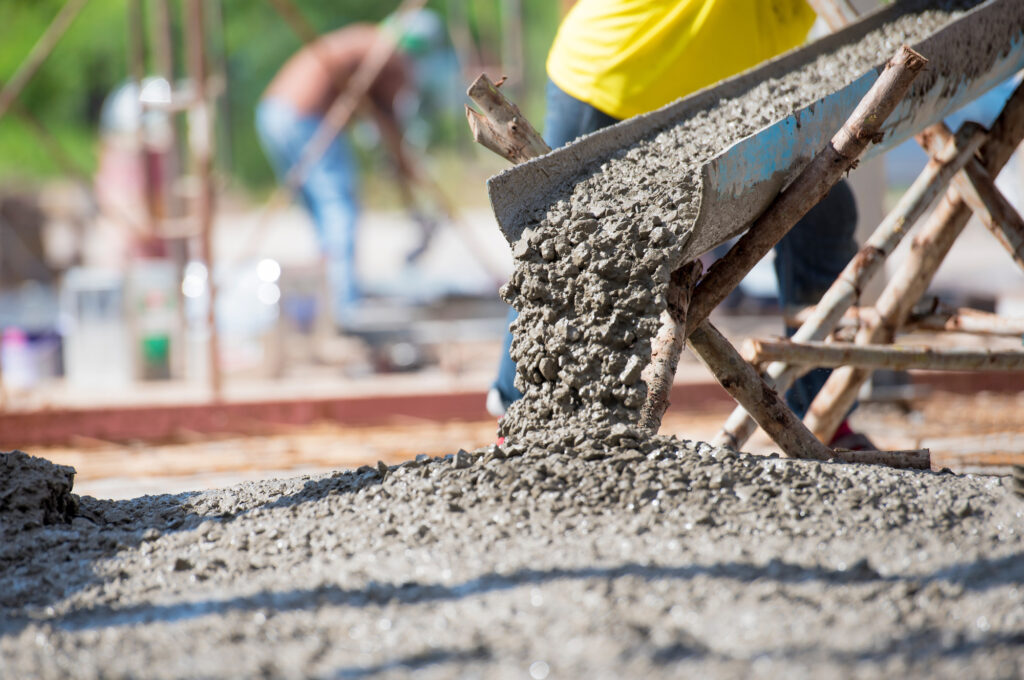
Introduction During the period of 2011 to 2021, Ghana’s real estate market demonstrated promising indicators. The population exhibited consistent growth, driving the demand for housing. Job opportunities expanded, contributing to economic stability. Median household income rose, making homeownership more attainable. Moreover, median home values experienced appreciation, showcasing the market’s potential for investors. Although challenges like limited financing and infrastructure deficiencies exist, positive factors such as urbanization and a growing middle class present lucrative opportunities. The government’s focus on infrastructure development further enhances the market’s attractiveness. Additionally, Ghana’s thriving tourism industry provides avenues for real estate investment in the hospitality sector. Investors keen on capitalizing on Ghana’s evolving real estate market should consider these positive trends while addressing the existing challenges. With careful navigation, the market holds promising prospects for growth and returns on investment. 1) Data Table: Real Estate Market Analysis in Ghana (2011-2021) KP1 2011 2012 2013 2014 2015 2016 2017 2018 2019 2020 2021 Total % Change Over Time Avg % Change Over Time Population Growth 24.66% 25.19% 25.73% 26.28% 26.85% 27.43% 28.03% 28.64% 29.26% 29.89% 30.54% 23.86% 2.35% Job Growth 6.81% 6.92% 7.03% 7.14% 7.26% 7.38% 7.51% 7.65% 7.79% 7.94% 8.09% 18.85% 1.83% Median Household Income $3,510 $3,617 $3,726 $3,837 $3,950 $4,065 $4,183 $4,303 $4,426 $4,551 $4,679 33.27% 3.12% Median Home Values $75,621 $77,303 $79,034 $80,816 $82,652 $84,543 $86,491 $88,498 $90,566 $92,696 $94,890 25.43% 2.39% Crime Rate 52.14 51.09 49.94 48.79 47.65 46.52 45.40 44.29 43.18 42.09 41.00 -21.41% -2.05% 2) Analysis of Unique Economic, Development, and Regional Challenges: In Ghana, several unique economic, development, and regional challenges have impacted the real estate market. Some of these challenges include: a) Limited Access to Financing: Access to financing for real estate development and home purchases has been a challenge, particularly for low- and middle-income individuals. The lack of affordable mortgage options and high interest rates restricts the growth of the real estate market. b) Infrastructure Deficiencies: Inadequate infrastructure, such as roads, water supply, and electricity, poses challenges to real estate development. The lack of basic amenities in some areas limits the attractiveness and value of properties. c) Land Title Issues: Ambiguous land ownership and title registration processes have been a persistent challenge in Ghana. The absence of a well-defined and efficient land registration system creates uncertainties and hampers property transactions. d) Informal Housing Sector: The presence of a large informal housing sector, characterized by unplanned settlements and inadequate housing conditions, poses challenges for formal real estate development. The informal sector competes with formal developers and affects the overall quality and standardization of housing. 3) Analysis of Positive Economic and Development Opportunities: Despite the challenges, Ghana’s real estate market offers several positive economic and development opportunities, particularly for investors. Some key opportunities include: a) Urbanization and Population Growth: The rapid urbanization and population growth in Ghana present a high demand for housing, especially in urban areas. This creates investment opportunities for developers and investors looking to cater to the growing housing needs. b) Rising Middle Class: Ghana’s emerging middle class is driving the demand for improved housing and modern amenities. Investing in affordable housing projects targeting this demographic can be highly lucrative. c) Infrastructure Development: The government’s focus on infrastructure development, including road networks, utilities, and public transportation, opens up opportunities for real estate investors. Areas with planned infrastructure projects are likely to experience increased property values and demand. d) Tourism and Hospitality: Ghana’s growing tourism industry creates opportunities for real estate investment in hotels, resorts, and vacation rentals. The country’s rich cultural heritage and natural attractions make it an attractive destination for tourists. Investors should consider these positive opportunities while addressing the challenges mentioned earlier to make informed decisions regarding real estate investments in Ghana. 4) Sources: Population Growth: Ghana Statistical Service (https://statsghana.gov.gh/)Job Growth: Ghana Statistical Service (https://statsghana.gov.gh/).Median Household Income: Ghana Statistical Service (https://statsghana.gov.gh/).Median Home Values: Ghana Real Estate Developers Association (https://www.greda.org.gh/).Crime Rate: Ghana Police Service (https://police.gov.gh/).
Identify and Avoid Real Estate Scams in Ghana.

Identifying and avoiding real estate scams in Ghana requires vigilance and thorough research. Here are some key steps to help you identify and avoid real estate scams: Verify Property Ownership: Request proof of ownership from the seller or landlord. Cross-check the provided documents with official land records or the Land Commission to ensure the individual or entity claiming ownership is legitimate. Physical Inspection: Visit the property in person and thoroughly inspect it. Be wary of deals where you are not allowed to visit the property or are provided with excuses to avoid an inspection. Conduct Background Checks: Research the reputation and credibility of the seller, developer, or real estate agent involved. Look for reviews, testimonials, or any past complaints to assess their track record. Be Skeptical of Unrealistic Offers: If an offer seems too good to be true, exercise caution. Scammers often entice victims with significantly low prices or promises of high returns on investment. Research the market value of similar properties in the area to ensure the offer is reasonable. Use Professional Services: Engage the services of qualified professionals, such as lawyers, real estate agents, or surveyors. They can help you navigate the legal aspects, review contracts, and verify property information. Avoid Upfront Payments or Cash Transactions: Be cautious if you are asked to make large upfront payments or if cash transactions are encouraged. Legitimate sellers or agents usually follow standard payment procedures, such as using bank transfers or escrow services. Research the Developer or Construction Company: If you are purchasing property from a developer, research their history, completed projects, and financial stability. Ensure they have a good reputation and are registered with relevant regulatory bodies. Beware of Pressure Tactics: Scammers may use high-pressure sales tactics to rush you into making a decision without proper due diligence. Take your time, thoroughly review all documents, and seek independent advice before committing to any transaction. Verify Legal Documentation: Consult with a lawyer to review all legal documentation, including sale agreements, title deeds, building permits, and land lease agreements. Ensure they are authentic and accurately represent the property and its ownership. Report Suspicious Activities: If you encounter or suspect a real estate scam, report it to the appropriate authorities, such as the Ghana Police Service, the Economic and Organized Crime Office (EOCO), or the Land Commission. Reporting can help protect others from falling victim to the same scam. Remember, being cautious, conducting thorough research, and seeking professional advice are essential when dealing with real estate transactions in Ghana. If something seems suspicious or too good to be true, it’s important to proceed with caution to avoid becoming a victim of real estate scams.
Real Estate Scam in Ghana: Causes & Prevention
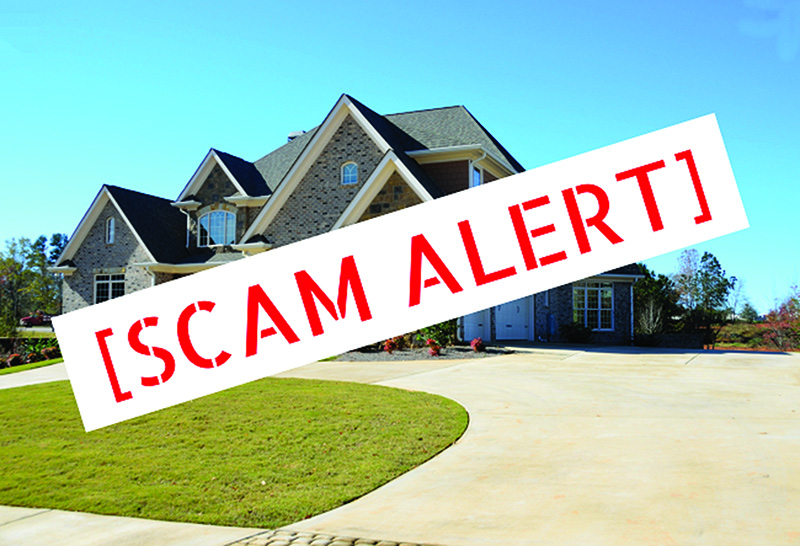
Real estate scam in Ghana can be caused by various factors, including systemic issues, lack of regulation, corruption, and a lack of awareness among buyers. Here are some common causes of real estate fraud in Ghana and preventive measures that can be taken: Causes of Real Estate Scam in Ghana: Prevention of Real Estate Scam in Ghana: By addressing the root causes and implementing preventive measures, Ghana can significantly reduce real estate fraud and protect the rights and interests of individuals involved in property transactions.
10 Comprehensive Guide to Renting Luxury Apartments in Ghana
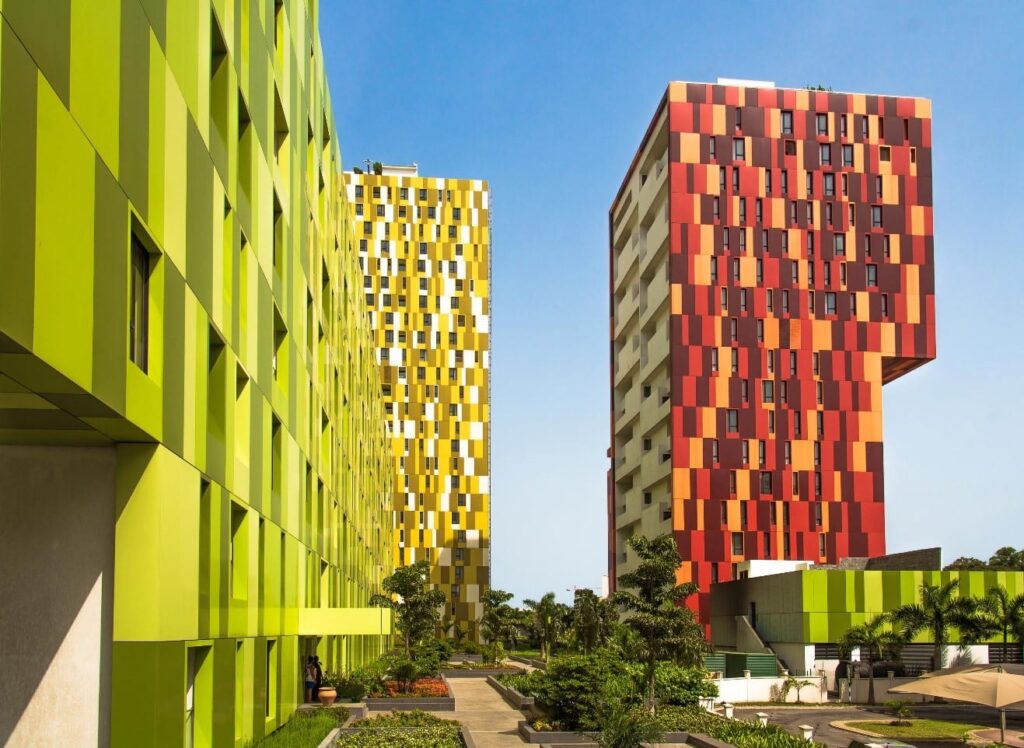
Introduction Renting a luxury apartment in Ghana offers the opportunity to experience upscale living in one of West Africa’s vibrant countries. From stunning views to top-notch amenities, luxury apartments provide a comfortable and stylish lifestyle. To ensure a seamless renting experience, it is essential to navigate the process with careful consideration. This comprehensive guide will take you through the key steps to find and secure your dream luxury rental in Ghana. Determine Your RequirementsBegin by defining your specific requirements for a luxury apartment. Consider factors such as location, size, number of bedrooms and bathrooms, amenities, security features, parking facilities, and proximity to essential services and attractions. Clearly outlining your needs will help narrow down your search and focus on properties that meet your criteria. Research the MarketConduct thorough research to understand the luxury rental market in Ghana. Explore online real estate platforms, consult with local real estate agents, and browse through property listings to get a sense of available options, rental prices, and trends in different neighborhoods. This knowledge will help you set realistic expectations and make informed decisions throughout the process. Set Your BudgetEstablishing a budget is crucial when renting a luxury apartment. Take into account not only the monthly rent but also additional costs such as maintenance fees, utilities, and any applicable taxes or service charges. Ensure that your budget aligns with the rental prices in the desired locations. It is important to strike a balance between your financial capabilities and the level of luxury you desire. Engage a Reputable Real Estate AgentConsider working with a reputable real estate agent https://www.loveridgeproperty.com who specializes in luxury rentals. They can provide valuable insights, access to exclusive listings, and assist you throughout the rental process, from property search to lease negotiation. A knowledgeable agent will have a deep understanding of the luxury market in Ghana and can help you find the perfect apartment that meets your criteria. Visit Potential PropertiesSchedule visits to the shortlisted luxury apartments to assess their condition, amenities, and overall suitability. Pay attention to the quality of construction, finishes, appliances, and any unique features that set the property apart. Take note of the security measures in place, such as CCTV surveillance, access control systems, and 24/7 security personnel. Visiting the properties in person will give you a better sense of the ambiance and help you make an informed decision. Verify Property Management ServicesLuxury apartments often come with additional services such as concierge, maintenance, and security. Inquire about the property management team and the services they offer. Ensure that they are responsive, reliable, and capable of addressing any concerns or issues that may arise during your tenancy. A well-managed property can greatly enhance your living experience. Review the Lease AgreementCarefully review the lease agreement before signing. Pay attention to the terms and conditions, lease duration, rent payment schedule, maintenance responsibilities, and any restrictions or policies outlined in the agreement. Seek legal advice if needed to ensure you fully understand the terms and protect your interests. A clear and comprehensive lease agreement is crucial for a smooth and hassle-free tenancy. Consider Security and SafetyLuxury apartments should prioritize security and safety. Inquire about the security measures implemented in the building, such as manned security guards, surveillance systems, secure entry systems, and emergency protocols. Evaluate the neighborhood’s safety reputation and proximity to emergency services. Ensuring your safety and peace of mind is paramount in selecting a luxury rental. Seek References and ReviewsRequest references from previous tenants or seek out online reviews to gain insights into the reputation and experiences of others who have rented from the same property or property management company. This firsthand information can help you make an informed decision about the reliability and quality of the luxury rental. Positive references and reviews are indicators of a well-regarded property. Negotiate TermsDepending on the rental market conditions, you may have room to negotiate certain terms such as rental price, lease duration, or inclusion of additional services or furnishings. Work with your real estate agent to negotiate the best possible terms that meet your requirements and align with your budget. Effective negotiation can help you secure a favorable rental agreement. Conclusion Renting a luxury apartment in Ghana offers a prestigious and comfortable lifestyle. By following this comprehensive guide, you’ll be well-equipped to find and secure your dream luxury rental. From determining your requirements to conducting thorough research and engaging with reputable professionals, each step is vital in ensuring a successful and fulfilling renting experience. Take your time, evaluate options carefully, and soon you’ll be enjoying the luxurious living that Ghana has to offer.
